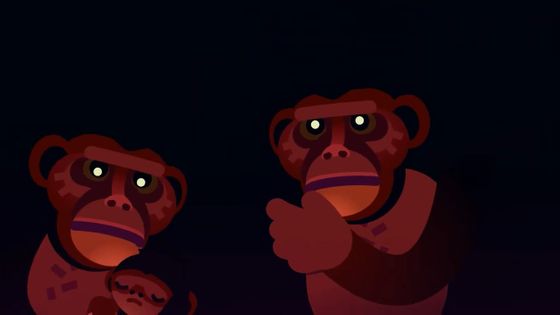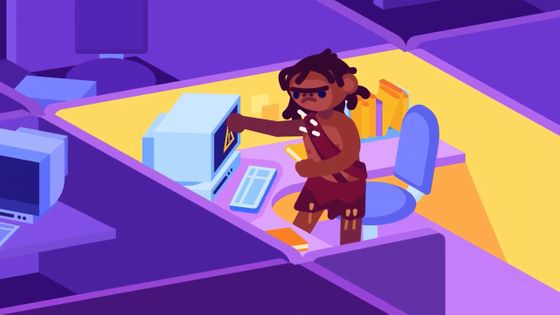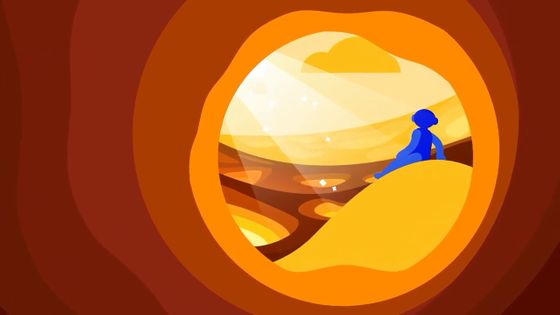Is the world heading towards destruction?

When watching TV and social media, we are bombarded with tragic news and heart-breaking realities every day, so some people may have the feeling that 'the world will get worse and worse and eventually be destroyed.' In response to this, science-related YouTube channel
Is Our World Broken? - YouTube
The modern world is clearly a better time than any other time humanity has ever lived in. Never before have so many people been able to enjoy good health and prosperity.

Despite this, life is extremely difficult. More than 15,000 children die every day around the world, and 700 million people live in extreme poverty. Even in wealthy countries and regions, there is a lot of inequality and daily suffering, as well as divisions due to disparities and political ideologies.

Humanity has not been able to solve these problems, and many people feel like they are living in dark times. When people face problems that are too big to solve, they tend to feel isolated and helpless.

But Kurzgesagt argues that looking back at the journey of humanity so far as a story might provide a new perspective.

Time and space began as a sort of state of pure energy approximately 14 billion years ago.

Energy eventually transformed into forces and particles, and out of the chaos the laws of nature were born and stars were formed.

New stars and different worlds appeared, and while the less complex ones simply disappeared, those with the right conditions gave birth to even more complex ones.

That's life.

After billions of years of competing with the environment and other life forms, life evolved, giving rise to different groups of organisms, including plants, animals, and fungi.

On Earth, complex life forms evolved and disappeared at full speed, with millions of new species appearing and disappearing, each time evolving to become more powerful than the previous ones.

Then, about 6 million years ago, humans (the Homo subfamily) finally emerged.

Humans were originally just one species among many other animals, but through repeated evolution and extinction, our brains gradually developed. As a result, we gained a deeper understanding of the world, and began praying to the stars, harnessing fire, and using stones as tools.

Then, 200,000 years ago

Although life was still harsh, people still wanted to make the world a better place, so they built better tools and figured out ways to preserve information after death.

People began farming, the first villages and temples were built, and civilization snowballed.

Literature, astronomy, medicine, philosophy, and science developed, and industrialization progressed, finally leading to the modern information society.

In the last few generations, humans have transformed the world in ways never before seen: clearing land to turn it into food-producing farms and building cities clad in concrete and machinery.

We learned about the atoms that make up everything in this world and even reached other planets.

However, the people living in modern society have not changed since ancient times.

The qualities that helped our ancestors survive in the harsh world they lived in still influence the lives of modern people. For example, a preference for high-calorie foods was an important factor in helping our ancestors survive when food was scarce and hunger was common.

The same goes for the desire to be accepted by our peers and the fear of predators lurking in the darkness.

It is innate to humans to be cruel to those they consider inferior or to other animals, to be territorial and possessive, to be afraid of change, to downplay the harm they cause, and to ignore those in trouble 'outside of ourselves.'

'Humans are not good,' Kurzgesagt said. 'If we look at our history, we can't expect that from ourselves. In nature, we see beauty, but also violence and conflict without a shred of morality or kindness. We are apex predators driven by instinct, surviving in a world that has no compassion for us.'

People living in modern society, with its social media, coal-fired power plants, and nuclear weapons, are fundamentally no different from primitive man. Humans have not kept up with the progress of modern society.

'The real tragedy of humanity today is that we are so incredibly powerful, so unaware of our potential,' Kurzgesagt said. 'But there's nothing, except the physical limitations of the universe, that would stop us from creating a literal paradise.' He argues that humanity has great potential.

Humanity has long been thinking about the end of the world, but while it is highly unlikely that anyone living in modern society will ever see it firsthand, it is entirely possible that humanity will continue to exist for hundreds, or even millions, of years to come.

From the perspective of people in the future, modern society may be just the beginning.

Furthermore, whereas our ancestors 6 million years ago had to start from scratch, modern humans and their descendants have access to a wealth of knowledge that has been accumulated over time. It's like being handed a save file for a game that someone else spent countless hours playing.

Yes, the modern world has a lot of problems, but it's also the best world the world has ever known -- and humanity can make it better.

Perhaps even an optimistic person living in 1924 could not have imagined that in just a century, poverty would be reduced, new treatments for disease would be developed, and leisure and recreational options would increase.

The advent of agriculture around 10,000 years ago brought about a major change in human history, but the present may be the era of an agricultural revolution for people of the future.

Space development, the spread of AI, advances in biotechnology, and new ways of using energy are all the result of humankind's thinking over several generations. If we continue to think about current problems such as poverty, disease, inequality, and climate change over decades or centuries, there is a good chance that we will find the answers.

Of course, the world won't be a smooth sailing ride; the journey will be difficult and full of setbacks. But Kurzgesagt argued that 'if we can get our act together, we can create a world that's much better than we want it to be.'

Related Posts:
in Video, Posted by log1h_ik







